-
Use
Construction materials -
Applications
Fiber cement panels -
Characteristics
Durable, esthetically-pleasing, high quality finishes.
4 Product Files

4 Product Files
Cement, wood pulp and reinforcing fibers are blended along with water to form a raw mixture to create unique fiber cement panels through a process of winding, pressing, cutting, drying and coloring that is carefully monitored by Swisspearl.
Portland cement
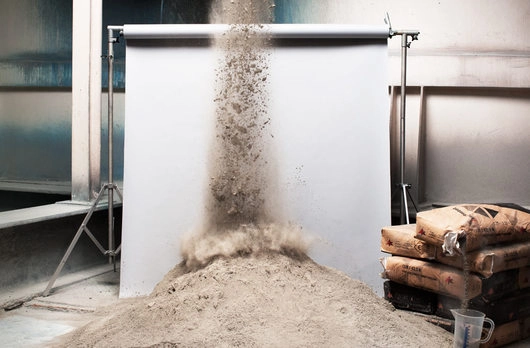
The binding agent used in Swisspearl products is Swiss Portland cement. This ingredient, sintered from limestone and marl clay, is by proportion the most important base material. It is produced through the firing of limestone together with marl. It is the binding of the lime with the silicic acid contained in the marl that gives the fiber cement its outstanding compressive strength. Additives such as powdered limestone improve certain characteristics of the cement and help produce a uniform product quality.
Reinforcing fibers
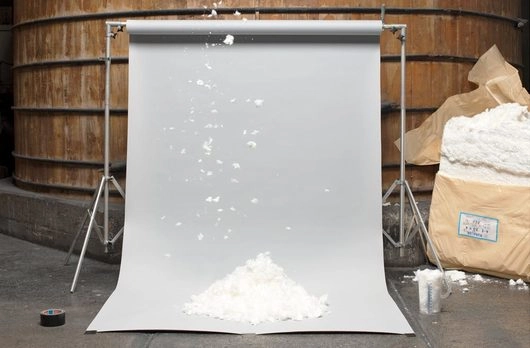
Synthetic and organic polyvinyl alcohol fibers are used as reinforcement. Processing fibers are made from cellulose wood fibers, similar to what is used in the paper industry - recycled waste paper can be used. These wood-based fibers prevent the separation of the cement-water mixture during the production process. The cellulose pulp that is useful only during the manufacturing stage dissolves over time. The resulting hollow spaces are filled in with the crystalline hydration products of the cement that form. This produces a durable increase in strength in the final product.
Pulp
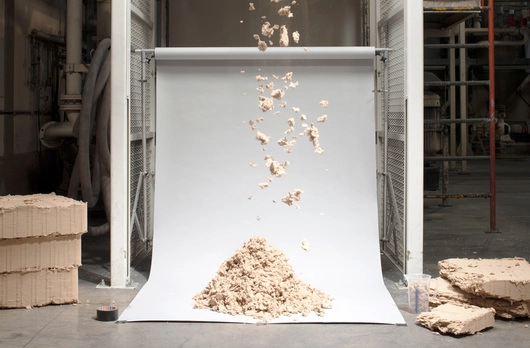
The water that remains after the product has solidified ensures further reinforcement throughout the product’s lifetime. Only a negligible quantity of water remains in the hardened fiber cement, which helps in the hardening (hydration) process of the cement stone.
Water
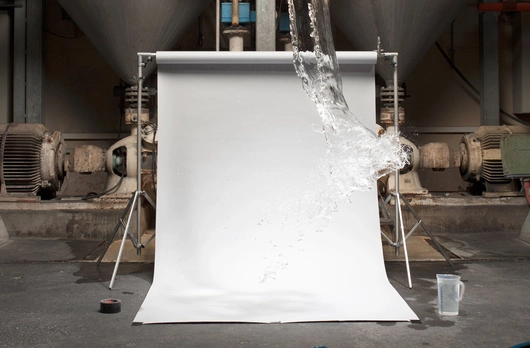
Air is present in the form of microscopic pores. These serve as space for the expansion of water when it freezes and prevents distortions due to frost. The micropore system produces a regulating, breathable and watertight building material. The processing fibers are supplied in the form of cardboard and added to a pulper, an enormous mixing device, together with water which dissolves the pulp into individual fibers; the mix is then further refined in a refining machine.
Until they are used, they remain in huge wooden vats and are stirred constantly. In the meantime, the reinforcement fibers are delivered in bales that are then mechanically loosened and thoroughly mixed in with the cement and water. Finally, all ingredients are added to a large mixer and combined thoroughly. The mixture, with cement as the paste, is now ready for production of the wide range of fiber cement products.
Air
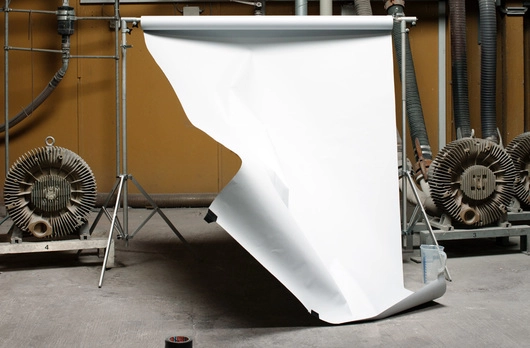
In order to produce the large-format panels, the mixture is then conveyed to the plating machine; it is then wound in several layers on format rolls to reach the desired thickness. The next step moves the preformed panels to the stamping machine, where the exact size is punched out. The product then continues to the pressing machining, where both excess water is squeezed out and the desired thickness is achieved.
In order to be able to use the panel, it first must be allowed to air dry for approximately 4 weeks. As a final step after the drying is complete, an appropriate coating is applied.
The result is a Swisspearl's fiber cement panel that is: